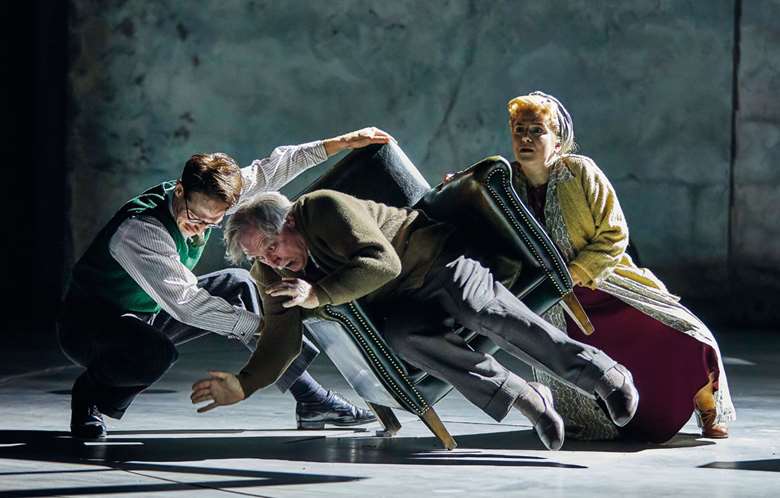National Theatre Collection: Small Island
Sarah Lambie
Friday, May 1, 2020
A beautiful production, well shot for screening and highly recommended for your students to watch

BRINKHOFF MOEGENBURG
National Theatre Collection is the series of National Theatre productions available for streaming on Drama Online, a platform which is free to state-funded schools and FE colleges in the United Kingdom and available to purchase for independent schools and sixth form colleges worldwide. Released in batches over recent months, the collection is now complete with 30 titles including A Streetcar Named Desire, Translations and Small Island.
I was particularly sad to miss this latter in the theatre having read and been very moved by Andrea Levy's book many years ago. For the Olivier Theatre, the NT's largest and most versatile space, the text was adapted by Helen Edmundson and directed by Rufus Norris. I cannot recommend it enough. It is exceptional storytelling in every way.
Across the board the performances are beautiful - the story centres on Hortense, played by Leah Harvey, and Queenie, played by Aisling Loftus and both are brilliant: complex characters with flaws and challenges played with warmth and sincerity. They are supported by an equally extraordinary cast of 25 other actors all of whom bring something joyous to the stage even in the smallest of roles.
The design would be of enormous value as inspiration for drama students: for large parts of the play very little set is used at all, and beautiful and effective use is made of projections. As an example of how light and sound can be used to create an environment, tell a story and manipulate emotions, this is a very useful work to share with young people.
The subject matter is also extremely important. Incorporating as it does scenarios based on the true experiences both of the Windrush generation and those who lived through both world wars, it is an affecting reminder of how recent those stories really are, and brings shockingly to the fore some of the more unpleasant aspects of our recent history in terms of racism.
There is much to be gained by directing students to watch this: for drama, and also history and PSHE.

